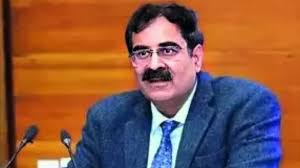Rajeev Verma, a 1992-batch IAS officer with extensive experience across Delhi and the Union government, has been appointed Chief Secretary of the national capital. His arrival comes as Delhi confronts pressing challenges—air pollution, urban congestion, and Yamuna cleanup—requiring deft coordination between state, central, and municipal authorities.
A Technocrat Bureaucrat with a Diverse Career
Verma, an officer of the AGMUT cadre, began his career in the early 1990s and has since held a wide range of administrative posts. Trained in computer science at Roorkee and holding an M.Tech from IIT, he blends technical expertise with policy experience. In Delhi, he previously served as Finance and Revenue Secretary between 2018 and 2022, and earlier held portfolios in housing and urban development. His central government roles included stints in the defence and transport ministries, adding to his multidisciplinary profile. Most recently, Verma was Chief Secretary of Chandigarh, where he oversaw governance reforms and urban planning initiatives.
Delhi’s Governance Challenges Await
Taking charge on October 1, Verma inherits a city grappling with multiple crises. Delhi’s annual struggle with air quality, particularly during winter, demands urgent attention. The cleanup of the Yamuna River—identified as a top administrative priority—will require coordination across municipal bodies, environmental agencies, and the state government. Infrastructure expansion, traffic congestion, and strained public health systems are also high on the agenda. As Chief Secretary, Verma will be the fulcrum of administrative decision-making, balancing political sensitivities with bureaucratic execution.
Strategic Appointment at a Crucial Time
Observers see Verma’s appointment as a carefully chosen move by the Union Home Ministry, designed to ensure stability and efficiency in the national capital’s governance. He succeeds Dharmendra, who retires at the end of September, and his long record of handling complex assignments is expected to serve Delhi well. However, expectations are steep: his leadership will be measured by the speed of implementation, ability to resolve inter-agency conflicts, and the capacity to push forward long-delayed reforms. Colleagues describe him as pragmatic, disciplined, and solution-oriented—a profile that may prove essential as Delhi navigates its most urgent civic and environmental challenges.


